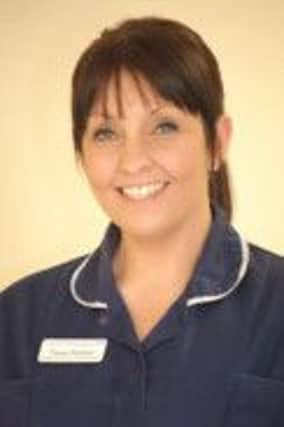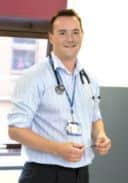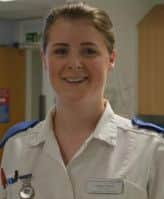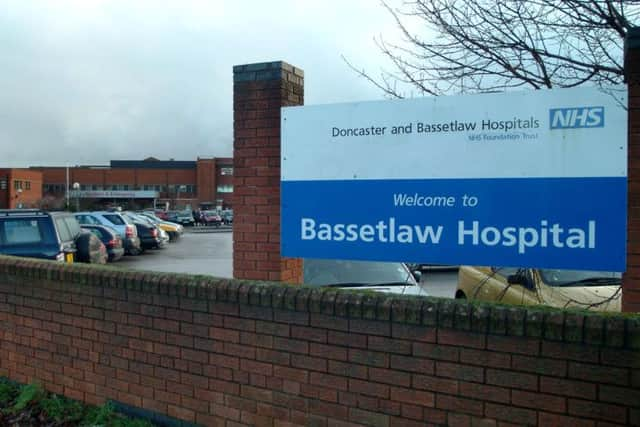FEATURE: ON THE FRONT LINE: Under pressure and working miracles at Bassetlaw Hospital


Just 91.8 per cent of patients were seen in four hours between January and March - below the 95 per cent target.
It is the worst three-month performance since the target was introduced at the end of 2004. We went along to speak to staff at Bassetlaw Hospital about dealing with one of the most difficult winters in NHS history, achieving the four-hour target, streamlining departments, retaining staff and the pressures of the job.
DIFFICULT WINTER


Advertisement
Advertisement
Dr Joe Joseph, one of six A&E consultants at the hospital, spoke of the volume of patients that were treated last winter.
“I wasn’t here for these days but some staff said we had a couple of days where we had to treat people on the corridors and in some of the plaster rooms,” he said.
“That sounded to me like we reached 150 plus patients on those days. When a department capacity goes over 30 patients, it starts overflowing, so it is a very small department in terms of capacity, so there were a few days in winter which were at that kind of level.”
“We see around 46,000 patients a year. The department is actually built to see 18,000 patients, so there is definitely a capacity issue, we need to expand to really accommodate full service. Our average patients is around 120-140 per day.”


Advertisement
Advertisement
Dr Nick Mallaband, assistant care group director for Emergency Care Group, said: “There was a lot of pressure on us over the winter, not just the amount of people in A&E but the amount of ill people that came to hospital and then trying to find beds for them. That put back pressure on our A&E department with people waiting.”
“Everyone has worked incredibly hard to make that better. It is amazing to watch the efforts of people as they offer to stay an extra two, three or four hours. There are dangers but we would never want someone to stay more than 12 hours, we wouldn’t have them stay 14 or 16 hours. I would like to say well done to everyone for working through what is nationally recognised as one of the hardest winters in NHS history.”
FOUR-HOUR TARGET and STAFFING LEVELS
Dr Joseph said: “The four hour target is one of the main targets that we are under constant pressure to achieve. We have some issues with how to solve the problem, capacity issues, exit blocks, this is on-going. The Emergency Department needs to change from a Monday to Friday service to a seven-day week service. At the moment it is still working as Monday to Friday and then Saturday to Sunday. Nationally, I think we need to change it to a seven-day service rather than Monday to Friday nine until five, that is the biggest challenge. It would be about hiring more staff but also equally distributing them.”


Dr Mallaband said: “Every 24 hours in A&E is different. We are quite good at predicting how many people will come in a seven-day period, we are relatively good at predicting how many people will come in a 24-hour period, we are really bad at predicting how many people will come in every hour. To get the staffing right for every hour of every day is a real challenge. You might get staffing right for an individual week but what matters most might be how many doctors were on at 4pm on a Tuesday afternoon and that might vary from week-to-week.”
STREAMLINING DEPARTMENTS
Advertisement
Advertisement
The Assessment and Treatment Centre (ATC) at Bassetlaw Hospital was recognised nationally as leading the way in an NHS report last year. The Bassetlaw ATC, which comprises of two main areas - ambulatory care and inpatient beds - was highlighted in the NHS Confederations’ Urgent and Emergency Care Forum’s report as a best practice case study to show how the challenges facing urgent and emergency care are already being addressed in some areas of the country. NHS Bassetlaw Clinical Commissioning Group (CCG), the Trust, Bassetlaw Health Partnerships and Nottinghamshire County Council Adult Social Care worked together to jointly develop the ATC, which opened in November 2012. The unit receives patient admissions from A&E, GPs, community services and the ambulance service. It has 24 beds with quick access to diagnostic tests, enhanced pharmacy and has dedicated social care support. Dr Mallaband said: “It’s been interesting so far. There have been some challenges but we have made some positive steps. Instead of people waiting in A&E they can come straight up to ambulatory care and get seen faster. What we are trying to do is get people seen by a senior decision maker at the door who identifies where they need to go. The issue with this is how we safely select those patients.”
“The next step is to better integrate A&E with acute medicine together. What we would like is an emergency care hub, instead of the moment where we have A&E down in one corner with x-ray and then medicine up in the rest of the hospital, what we’d really like to do is get the physical locations together.”


Tracey Ruddick, advanced nurse practitioner on ATC, said: “We have seen double the amount of patients in the year that I have been there and it has had great feedback.” “This frees up hospital beds for your older, frail patients. who might need that more independent care. It has doubled over a year and patients don’t really even know about it. We have developed it over a year and we want to develop it further. A lot of patients who are sat in A&E don’t need to be in A&E but they might need to be with us for a day. It takes a lot of organisation, it has been exceptionally hard work. If we can’t discharge them the same day, sometimes it is safe to discharge them and the bring them back the following day.”
RETAINING STAFF
Dr Mallaband said: “We are reviewing with A&E how we are going to staff the department and keep those staffing up. We are looking at developing our own local training scheme to take people who are interested in emergency medicine and try and give them some local training to bring them up to standard. So that would have two aims, one is to bring good people into our departments to help work with us and at the same time produce in two, three or fours years, good quality consultants so that we would be able to recruit and retain into our services at Bassetlaw Hospital and Doncaster.
Advertisement
Advertisement
Dr Joseph said: “Retaining staff is a issue for us, retaining good doctors, there is a lot of fluctuations in people who come and go. These are long term problems that need to be addressed nationally than locally.
PRESSURES OF THE JOB
Lindsay Farrow, Emergency Department staff nurse, who has worked at the hospital for three years, said: “I think we are dealing quite well with the volume of patients, it can be stressful, just like any job. It is trying to sign post people to the right areas and ED is not always the right place to come to, it is about getting people to the right services and expanding the public’s knowledge so they don’t think that ED is the only option.”
“We are a population that is living longer, we have multiple illnesses with multiple medications. It is how the Government develops the service to accommodate our demand.”
Nurse Ruddick said: “Everyone has been working miracles, it is a real team effort and I would like to say thank you to them all.”